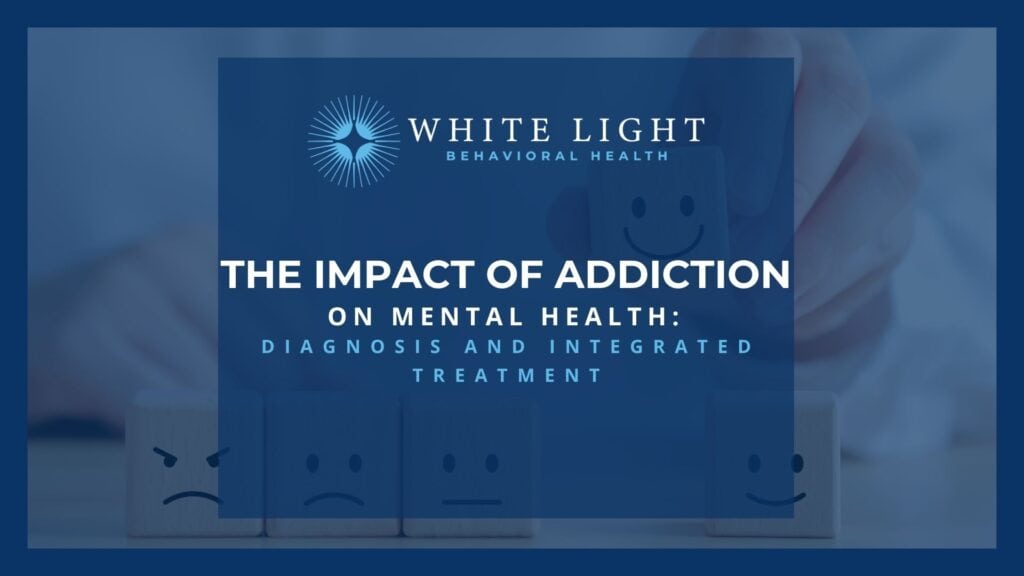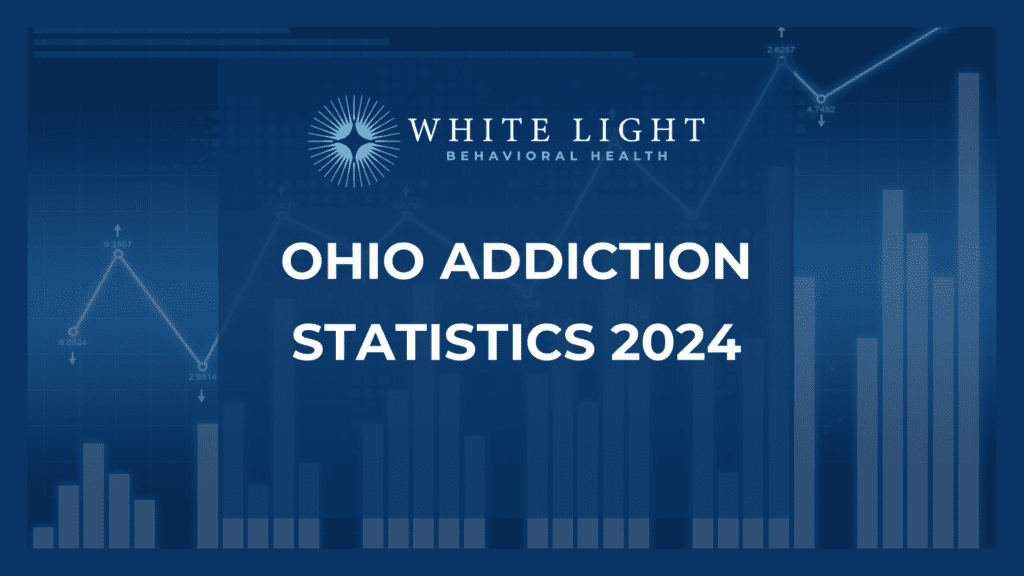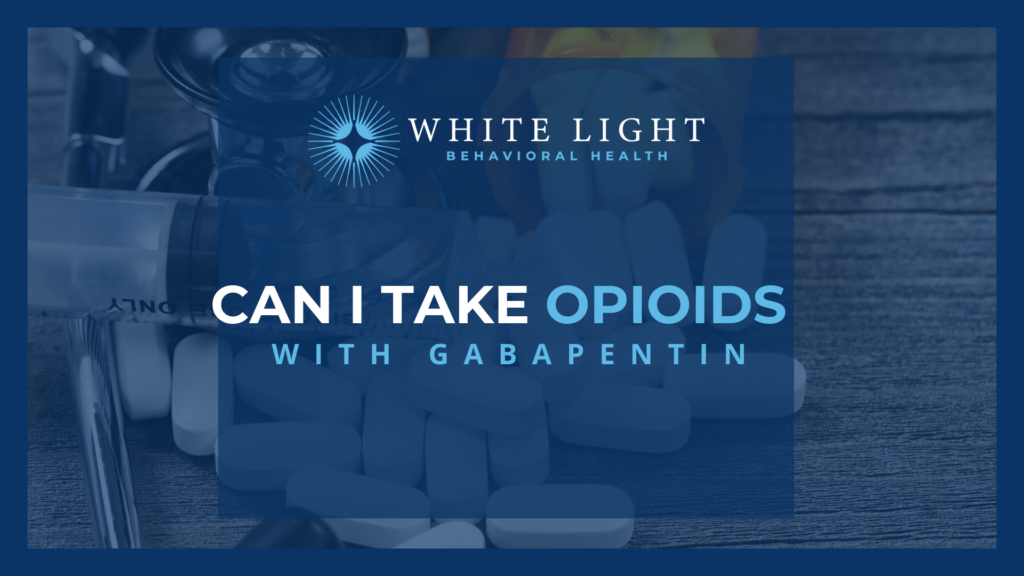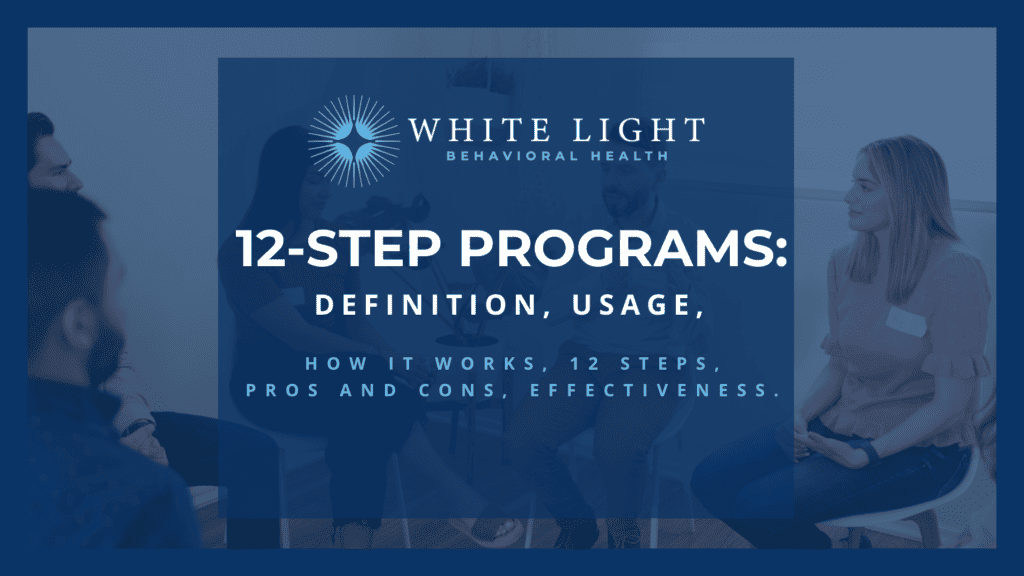It is estimated that over 10.9 million Americans experience addiction, and over 41.4 million deal with mental health conditions, making it clear that these two issues are often linked. The term “dual diagnosis” or “co-occurring disorders” is used to designate a person with both an addiction and a mental health condition.
It is essential to understand this connection to get the most effective treatment. This can be difficult for people around the sufferer, such as family members or healthcare professionals, to comprehend. In this article, we will explain what dual diagnosis is, the associated risk factors, and the importance of integrated treatment to support those struggling with addiction and mental health disorders.
What Is Dual Diagnosis?
Dual diagnosis refers to a situation where someone is struggling with both an addiction and a mental health issue at the same time. It is a concept used by medical professionals to better understand how to treat these particular circumstances of concurrent conditions.
Generally speaking, depression and alcohol abuse, anxiety and cocaine abuse, post-traumatic stress disorder (PTSD), and opioid addiction are the most common dual diagnosis combinations. It needs to be mentioned that addiction can cause mental disorders and vice versa: psychiatric issues can also be caused by addiction.
Therefore, dual diagnosis treatment looks at mental health symptoms and substance use disorders to create more effective treatment plans for the patient. Medication may be required to help manage the symptoms of any mental illness, while lifestyle changes such as diet, exercise, and therapy are used to reduce cravings and prevent relapse. By tackling both issues simultaneously, individuals have the best chance of achieving sustainable sobriety.
The Role of Addiction in Mental Health Issues
If you or someone close to you is having difficulty managing addiction and mental health issues, it’s essential to recognize that these are two different conditions. They can affect each other significantly and are referred to as dual diagnoses or co-occurring disorders when combined. That is someone struggling with addiction and a mental health problem like depression or anxiety. Addiction may contribute to mental health complications, while mental health disturbances could be the source of addiction.
Furthermore, external factors such as trauma may also play a part. These two conditions can feed into each other in a vicious cycle. For example, someone who is suffering from depression may turn to drugs or alcohol in an attempt to numb their feelings. In contrast, someone addicted may experience changes in their mood or behavior due to their substance abuse disorder.
As a result integrated treatment is necessary for those struggling with dual diagnosis. It should include medical treatment for the substance abuse disorder and psychotherapy for the underlying mental health issues.
How to Identify Signs of Dual Diagnosis
Identifying the signs of dual diagnosis can be difficult since each has its symptoms, and the signs may also vary from one person to the other. It’s also worth mentioning that the signs of dual diagnosis may vary depending on the substance being abused and the mental health issues involved.
Unusual Behaviors
These can come in many forms—such as extreme mood swings, changes in social activity, or a sudden disregard for previously agreed-upon rules.
Substance Abuse
If someone you know self-medicates with drugs or alcohol, this may indicate an underlying mental health issue.
Isolation and Withdrawal
Withdrawing from family and friends or isolating oneself from others might indicate depression or anxiety.
Lack of Concentration
One may feel the urge to use the substance to focus or properly function.
Sleep Deprivation
Individuals with dual diagnosis may also suffer from a lack of sleep since they are accustomed to using the drug to fall asleep.
Developing a High Tolerance for the Substance
Having a high tolerance for drugs or substance abuse is another telling sign of dual diagnosis.
Treatment Approaches for Dual Diagnosis
Integrated dual diagnosis treatment offers an all-in-one solution to managing both conditions at the same time. This approach combines psychosocial, cognitive, and medical services. This holistic model promotes healing on an emotional, and physical level, all while addressing the root cause of the conditions. Through group therapy, skills training, individual counseling, family sessions, and relapse prevention planning, clients can gain the knowledge and resources necessary to create a recovery-based lifestyle.
Treating dual diagnosis successfully is possible. With integrated dual diagnosis treatment, clients can learn effective strategies for coping and gain the confidence to stay on their path to recovery. With proper support, the cycle of mental health issues and addiction can be broken, and the possibility of successful, lasting recovery can become a reality.
Moreover, it offers a supportive and reassuring atmosphere in which individuals who have shared experiences can provide each other with comfort and understanding.
Additionally, some initiatives have been taken around combining medication-assisted therapies with other forms of traditional psychotherapy for treating dual-diagnosis cases. The combination of these treatments is effective in promoting long-term recovery from substance abuse issues.
If you or someone you know suffers from a dual diagnosis, integrated treatment may be the best approach for effectively managing addiction and mental health disorders.
Benefits of Integrated Treatment for Addiction and Mental Health
Did you know that integrated treatment for addiction and mental health issues can incredibly benefit a person’s recovery? While there is no silver bullet for treating addiction and mental health issues, taking an integrated approach to treatment can be life-changing.
As per a report from the National Institute of Mental Health, An integrated treatment plan simultaneously addresses mental health disorders and addiction to provide the client with comprehensive care. When both issues are addressed, it creates a holistic approach to recovery tailored to each individual’s needs, reducing relapse rates and increasing the likelihood of successful long-term recovery.
Integrated treatment greatly reduces the stress of managing two separate treatments, as addressing both problems simultaneously eliminates the need to manage two appointments and two sets of medications. Furthermore, the patient’s recovery journey is more manageable when they have access to experienced and knowledgeable specialists in their particular challenges, such as substance abuse and anxiety or depression.
Integrated treatment also encourages better care coordination between medical professionals as they work together with a common goal—to help their patients reach complete physical and emotional well-being. With access to coordinated healthcare services, individuals can receive effective treatments that address their entire health picture, thus improving successful outcomes long after the completion of treatment.
Mental Health Resources for Those Battling Addiction
When battling addiction, the effects on mental health can be profound. Did you know numerous services are available to assist those fighting substance abuse and mental illness? Obtaining access to the right treatment is essential for a successful recovery.
Here are a few options to consider:
Dual Diagnosis Treatment
This method acknowledges that substance abuse and a mental health disorder are present and must be addressed simultaneously for successful recovery. During dual diagnosis, integrated treatment is typically provided for both issues rather than just one.
Support Groups & Therapies
Finding support through support groups or comprehensive therapies such as cognitive-behavioral therapy (CBT) can be invaluable when tackling addiction. Talking through issues openly with peers who understand can provide relief and motivate individuals to continue their journey toward recovery. Seeking counseling and engaging in psychotherapy can help individuals cope with their addiction and underlying mental health issues. No matter what your situation may be, there is no one-size-fits-all approach when it comes to tackling addiction and its effects on mental health. It’s important to remember that you have resources available if you are struggling—reach out for help today!
In-Patient Care
If you or your loved one is experiencing a dependence pattern of addiction and mental health issues, it’s advisable to seek treatment at an in-patient care facility that offers dual diagnosis treatment. The treatment facility will be able to provide medical and mental health care suited to your medical needs.
Start Your Recovery Journey Today!
Recognizing that addiction and mental health issues can be linked, dual diagnosis and integrated treatment for these conditions can be incredibly advantageous for those struggling with their symptoms. This type of treatment enables individuals to tackle stressful circumstances, make positive lifestyle changes, and create healthy coping mechanisms. Ultimately, it is important to recognize the intricacies of addiction to provide the most efficient and effective form of addiction disorder treatment. If you or a loved one are grappling with both addiction and mental health problems, Contact White Light Behavioral Health today.
How does addiction affect brain chemistry and mental health?
Addiction profoundly impacts brain chemistry, altering neurotransmitter levels and neural pathways. Substance abuse disrupts the brain’s reward system, leading to compulsive behaviors and diminished self-control. This disruption often exacerbates underlying mental health issues, such as depression or anxiety, creating a complex interplay between addiction and mental health.
What are the common mental health disorders co-occurring with addiction?
Addiction frequently co-occurs with various mental health disorders, including depression, anxiety, bipolar disorder, and post-traumatic stress disorder (PTSD). These dual diagnoses present unique challenges in treatment, as addressing both addiction and mental illness concurrently is crucial for successful recovery.
What role does genetics play in addiction and mental health susceptibility?
Genetics can predispose individuals to both addiction and mental health disorders. Certain genetic factors for alcoholism influence susceptibility to substance dependence and mental illness, contributing to familial patterns of addiction. Understanding genetic influences can inform personalized treatment approaches and interventions tailored to an individual’s unique needs.
How does trauma contribute to addiction and mental health issues?
Traumatic experiences can significantly contribute to the development of addiction and exacerbate existing mental health conditions. Individuals may turn to substances as a coping mechanism to numb emotional pain or alleviate symptoms of trauma. Addressing trauma alongside addiction treatment is essential for long-term recovery and mental wellness.
How does socioeconomic status impact addiction and mental health treatment access?
Socioeconomic factors, such as income level, education, and access to healthcare, significantly influence addiction and mental health treatment access. Individuals from lower socioeconomic backgrounds may face barriers to quality care, including limited resources and stigma. Addressing these disparities is crucial for ensuring equitable access to comprehensive treatment services.
Can mindfulness practices help in addiction recovery and mental health management?
Mindfulness practices, such as meditation and deep breathing exercises, have shown promising results in addiction recovery and mental health management. By cultivating present-moment awareness, mindfulness techniques can help individuals cope with cravings, manage stress, and regulate emotions. Integrating mindfulness into treatment plans can enhance overall well-being and resilience.
How do social relationships impact addiction and mental health recovery?
Social relationships play a significant role in addiction and mental health recovery. Supportive networks can provide encouragement, accountability, and a sense of belonging, which are essential for maintaining sobriety and managing mental health challenges. Building healthy relationships and fostering a supportive environment is integral to long-term recovery success.
What are the early warning signs of addiction, and when should intervention occur?
Early warning signs of addiction may include increased tolerance, withdrawal symptoms, neglecting responsibilities, and changes in behavior or mood. Recognizing these signs and intervening promptly is crucial to prevent the progression of addiction and mitigate potential harm. Early intervention strategies, such as education, counseling, and support groups, can facilitate recovery before addiction becomes more entrenched.
How do cultural factors influence perceptions and treatment of addiction and mental health?
Cultural factors significantly impact perceptions of addiction and mental health, influencing attitudes, beliefs, and help-seeking behaviors within different communities. Cultural norms, values, and stigma surrounding addiction and mental illness may vary, shaping access to treatment and recovery approaches. Culturally competent care that respects diversity and acknowledges cultural influences is essential for effective treatment outcomes.
What are the stages of addiction, and how can individuals recognize them?
Addiction typically progresses through stages, including experimentation, regular use, problematic use, dependence, and addiction. Recognizing these Stages of Addiction involves assessing patterns of behavior, physical symptoms, and psychological indicators. Understanding the progression of addiction can empower individuals and their loved ones to intervene early and seek appropriate treatment resources.

Share This Post



